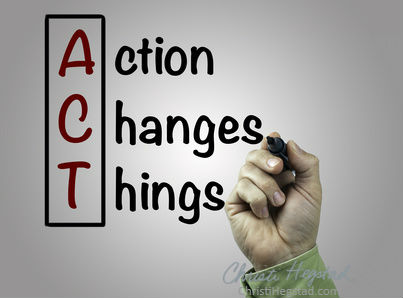
“When I won the Oscar, I thought it was a fluke. I thought everybody would find out, and they’d take it back… ‘Excuse me, we meant to give that to someone else. That was going to Meryl Streep.'” – Jodie Foster
My blog and social media posts last week on impostor syndrome sparked a great deal of discussion. Interestingly, none of it public.
But does that come as any surprise? Although some reports show 70% or more of us experience impostor syndrome, we typically feel like we’re the only ones. I can think of countless coaching clients who have shared, shyly and almost under their breath, inklings of impostor syndrome; I can recall a number of times I have shared similar thoughts with my coach, too.
I vividly remember, for example, the first time I hosted Spark, a public event that I subsequently held for many years. I sent the email announcement, then immediately closed my laptop and walked away, thoughts of “What if no one registers? Who am I to put on an event like this?” running through my head.
And then, even in Spark’s 5th year and after registrations had sold out nearly every year prior, thinking, “Yes, maybe it will sell out – but what if no one shows up?”
Or, what if they show up and think I don’t know what I’m talking about?
Or, what if they think I know what I’m talking about but… and on and on and on.
Impostor syndrome, if nothing else, is exhausting.

Changing The Story
I remember reading that Maya Angelou – a prolific author, poet, and world-changer in so many ways – sometimes worried, even after numerous publications and accolades, that she had “run a game on everybody, and they’re going to find me out.”
Maya Angelou!
So step #1 in addressing impostor syndrome is recognizing that you’re not alone.
From there, a variety of internal, practical, and mindset tips can minimize impostor syndrome. We often delve deep into this work through coaching, but here are a few ideas to help you get started:
1. Create a “Making A Difference” file.
Set up an email folder called “Making A Difference” or “Proof Positive” or something that speaks to you. Then, every time you get a message from someone thanking you, acknowledging a job well done, or anything else that feels uplifting, store it in the file. You can also include certifications, volunteer hours, items you’ve published, or other helpful documentation.
On days when you question yourself, pour a cup of coffee, open the file, and let the words remind you of what you already know: You make a difference.
Side note: Keep a physical copy in your journal or planner as well.

2. Take an action.
One of the biggest takeaways from The Confidence Code, an excellent book by Katty Kay and Claire Shipman that we discussed in-depth in the ASPIRE Success Club a few years ago, is actually the title of one of their chapters: Do More, Think Less.
“Confidence is linked to doing,” they write. “Think less, take action, be authentic.”
This is especially helpful if you lean towards overthinking. Check in with your values, make a decision, then take an action in favor of that decision.

3. Accept compliments graciously.
It seems like such a small detail, but wow does it make a difference! Instead of being self-deprecating or brushing aside compliments as if they don’t apply to you, simply say, “Thank you.” End of story.
What changed this for me was realizing that whenever I pushed aside a compliment with something like, “Oh, but I messed up three times!” or even “This old thing? I’m almost embarrassed to wear it!”, I was basically saying to the complimenter, “You are wrong.” That seems downright rude, and I strive not to be rude whenever possible.
Once you begin accepting compliments with a simple ‘Thank you,’ the next step is to start believing them!

4. Keep a Success Journal.
This action literally takes less than two minutes per day but can change your entire perspective.
Every afternoon before you leave work or every night before you go to bed, jot down one ‘win’ you experienced that day. Maybe you completed something that’s lingered on your to-do list, or you had a great conversation with your child, or you harvested a tomato from the plant you’ve diligently been cultivating. YOU get to decide what constitutes a win, and make a quick note of it.
Soon, you will have an entire list of wins to counteract any impostor-y thoughts.

5. Set up visual cues.
Turning to things outside of your own head can be especially helpful when the inside of your head wants to focus on doubt.
Strategically place items that remind you of your strength, courage, ability, and purpose in frequently-seen spaces (desk, bathroom mirror, phone wallpaper, planner, etc). For example, I had a greeting card on my desk for ages that included the Joan of Arc line, “I am not afraid. I was born to do this.” Seeing visual anchors like these, including your Success Journal, helps redirect your thoughts in the moment.

I have coached people who feed the hungry, run multi-million dollar budgets, speak on huge stages, literally save lives every day … and who still hear a voice that asks, “Who do you think you are?” So if you hear it too, you’re in good company.
The above tips can help quiet that voice, as can the support of a coach. In addition, resources like the previously mentioned Confidence Code by Kay & Shipman and Lean In by Sheryl Sandberg can prove insightful. You can even find some quick celebrity thoughts on impostor syndrome here.
Next time you hear that voice asking, “Who do you think you are?” – take it as an opportunity instead of a threat. Answer it with a resounding description of your strengths and actions, culled from the above tips.
I’ll bet you soon find that critical voice getting quieter and quieter as you put more and more of your greatness out into the world!
Christi Hegstad, PhD, PCC is the Certified Executive + Personal Coach for difference-making achievers! Clarify your vision, free up time, and confidently reach bold, compelling goals that matter! Contact us today for coaching, speaking, and Mastermind opportunities, or click here and fill in the blue box to join our email community.





